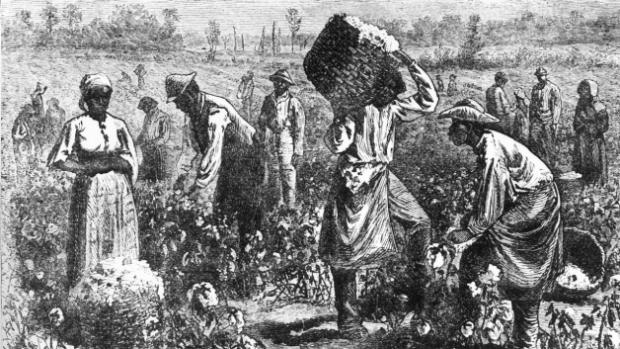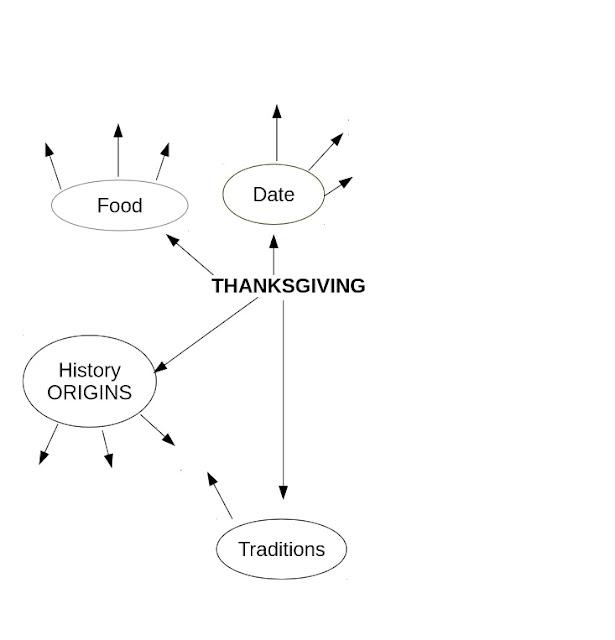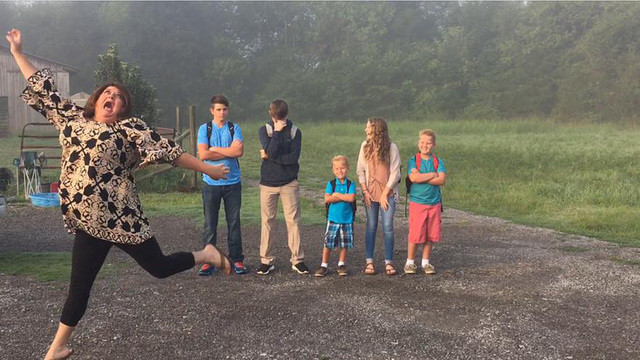From Slavery to The White House
Hello my dear pupils!
I hope you are all doing well.
This new chapter will deal about a very special subject. Can you try to guess what it is? :)
Doc 1: working in cotton fields
Look at this picture: describe it as precisely as possible.
You can see people working outside, in what appears to be a cotton field in a cotton plantation. All the workers are black-skinned: they are slaves. Their work looks (= avoir l'air) harsh and difficult. There is no happiness in this picture.
Black-skinned: on a rendu cela sous forme adjectivale en ajoutant un "-" et un -ed.
Now, look at this picture: describe it and compare it with the previous one.
DOC 2: test your knoledge!
Now read this text and try to answer the following questions. What do you know about slavery?
Le Prétérit (passé)
è Ce temps correspond à décrire des actions passées (dans un récit), qui sont achevées . On peut le comparer à l’imparfait, le passé composé et le passé simple .
- Construction : il y a 2 types de verbes :
- REGULIERS = on ajoute -ED/ -D à la fin du verbe
- IRREGULIERS = il faut les apprendre par <3
Dans les questions, les réponses courtes et dans les négations, on ajoute l’auxiliaire « DO », qui se dit « DID » au prétérit.
Exemples de phrases :
1) Affirmative : Sujet + V-ed// 2e col + complément : I played football.
2) Negative : Sujet + didn’t + BV + complément : you didn’t play football
3) Interrogative : Did + sujet + BV + complément ? :Did you play football ?
à Lorsqu’on a «DID » à la négative et l’interrogative, le verbe RESTE A LA BASE VERBALE (non conjugué)
Exercices:
WAS = sg ou WERE= pl ? → auxiliaire ETRE/BE
1. She is thirty now, so last
year she …………. twenty-nine.
2. …………. it a good film?
3. I got married when I …………. twenty-seven.
4. It …………. a great day, but we …………. so tired!
5. I didn't buy those jeans because they ………….
too expensive.
6. When I …………. a child we lived in Rome.
7. Where …………. you yesterday afternoon?
Conjuguez
les verbes au prétérit simple
1. The concert
__________ (be/was-were/been) great. I really __________ (enjoy) it.
2. _______________________
(you / have/had/had) a nice weekend
in London?
3. She
_______________ (not / like) the food. It was horrible.
4. Which
museum _____________________(you /
go/went/gone) to ?
5. Yesterday
we ________________ ( go/went/gone) to Paris and we __________ (pay/PAID/PAID)
a visit to Jane.
6. They
_________________ (pass) their exam last year. They __________ (be) very happy.
7. I
_____________ (see/saw/seen) her five minutes ago!
8. They
_______________ (not / win/won/won)
the game. What a shame!
9. She
_________________(do/did/done) some shopping but I didn't. I
___________________ (not / want) to queue at shops.
10. You
_______________ (not / be) in very good health. That's why you __________
(lose/LOST/LOST) the match.
11. Sophie
_______________ (be) ill yesterday. She ____________ (stay) in bed all
day.
12. The house
_____________ (burn/burnt/burnt) completely. The fire brigade
___________________ (not / arrive) on time.
***correction***
1. She is thirty now, so last year she WAS twenty-nine.
2. WAS it a good film?
3. I got married when I WAS twenty-seven.
4. It WAS a great day, but we WERE so tired!
5. I didn't buy those jeans because they WERE too expensive.
6. When I WAS a child we lived in Rome.
7. Where WERE you yesterday afternoon?
Summary:
 Solomon Northup was a free
black man living in New York who was lured* south, kidnapped, and sold into
slavery.
Solomon Northup was a free
black man living in New York who was lured* south, kidnapped, and sold into
slavery.
His memoir, written shortly
after his escape, recounts the harsh* events of his kidnapping, and his dehumanizing and violent treatment as
a slave on plantations in Louisiana where he worked in the cotton and sugar
cane fields.
During
all those years, Northup looked for a chance to escape…
*HELP:
Lured
= attiré
Harsh = difficult, hard
https://www.youtube.com/watch?v=z02Ie8wKKRg
→ what:
→ where:
→ when:
→ who:
3) Explain in your own words what happened to the main character in this story:
4) How are the slaves treated?
5) What is the relationship between people? Fill in this table.
|
|
Black
vs White |
Black
vs Black |
White
vs White |
|
Free |
|
|
|
|
Slave
|
|
|
|














Comments
Post a Comment